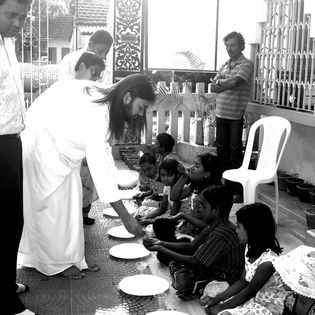

Our activities are divided into three main segments...
Social Welfare: Where relief and charity are key actions.
The Mediator: Where communication as a skill is important for development and social actions.
The Consultant: Where support documentation and dissemination of information and expertise is critical.
Social Welfare: Where relief and charity are key actions.
Our organisation in this role can be seen as initiating internal programmes and projects. Major secondary actors who would support our organisation in this role include international donor agencies and other charity institutions.
The Mediator: Where communication as a skill is important for development and social actions.
Our foundation in this role can be seen as participating or taking up external programmes and projects. Major secondary actors include government agencies and other formal institutions.
The Consultant: Where support documentation and dissemination of information and expertise is critical.
Our organisation in this role can be seen as working in collaborative programmes. Local experts professionals / resource persons play secondary roles here.
The true creativity of our organisation lies in creating networks of information, innovation and interaction which enables people to communicate, to share and to receive, effecting positive social change in the long run.
Such networks would-
1. Bring people together locally and globally, and focus attention on key issues for discussion, deliberation and consensus.
2. Organise communication and information relevant to communities' needs and problems, in a prompt manner.
3. Require the involvement, support and participation of a board base of citizens, including community activists, leaders, sponsors and other concerned individuals, include in its functioning, the concerns of low income groups, women and minorities-who otherwise find it difficult to voice their problems and needs.
Such networks are highly consistent with the importance that is placed on grassroots innovations which solve problems and satisfy needs of the local community, and instil / strengthen a sense of ownership and belonging in its members. Networks are therefore vibrant forces capable of building on the knowledge they have accumulated, and adapt to a rapidly changing world and community needs.
